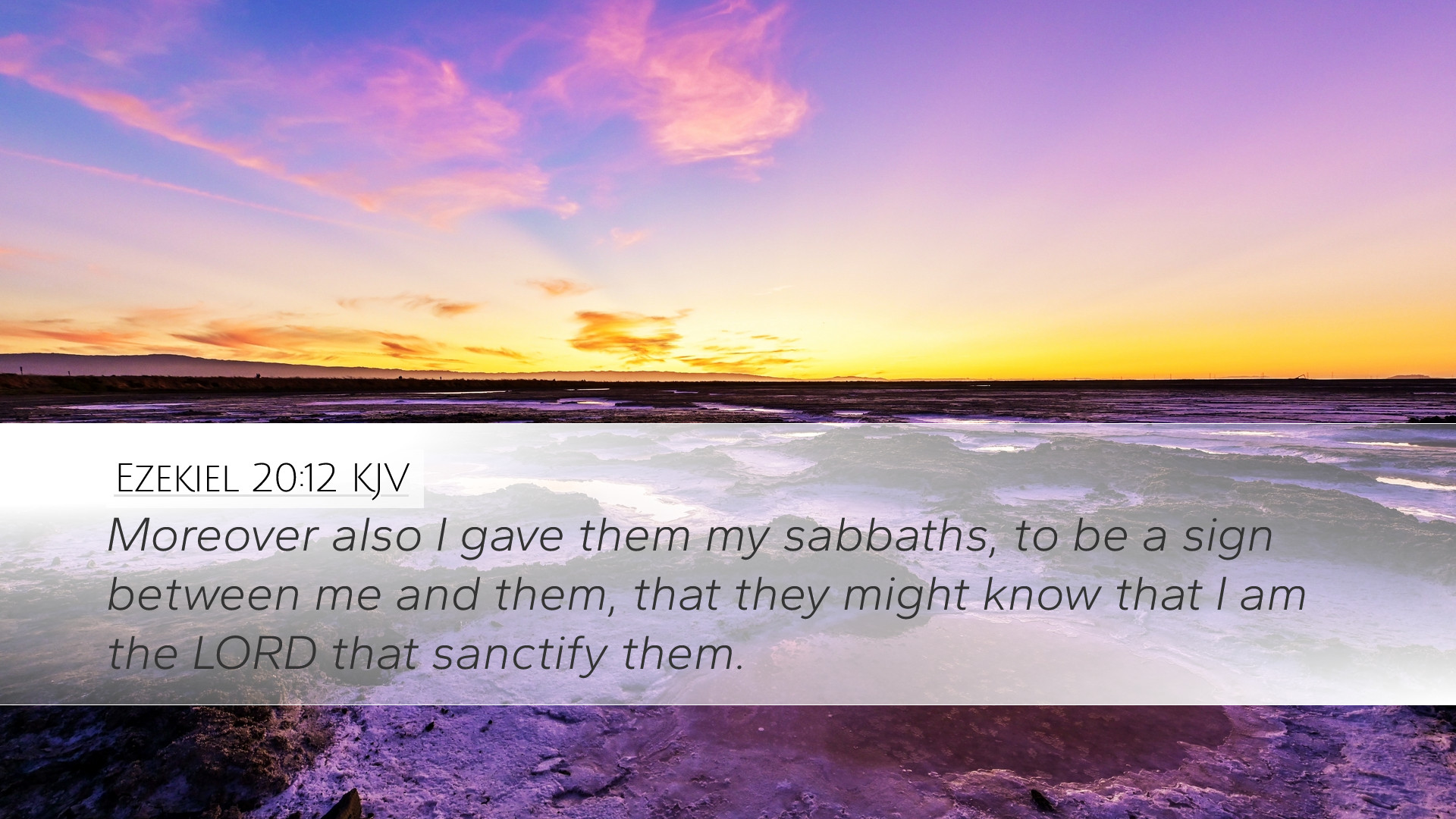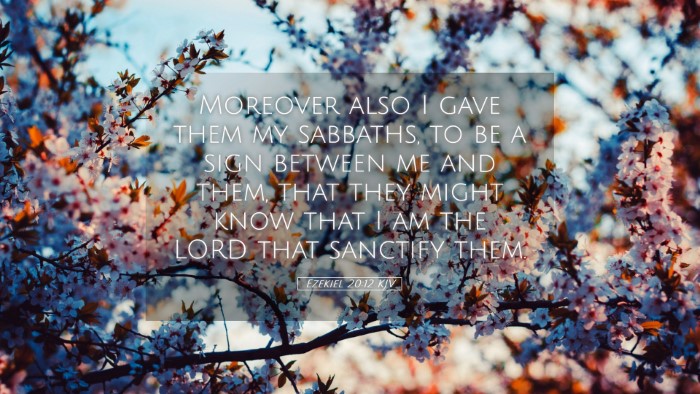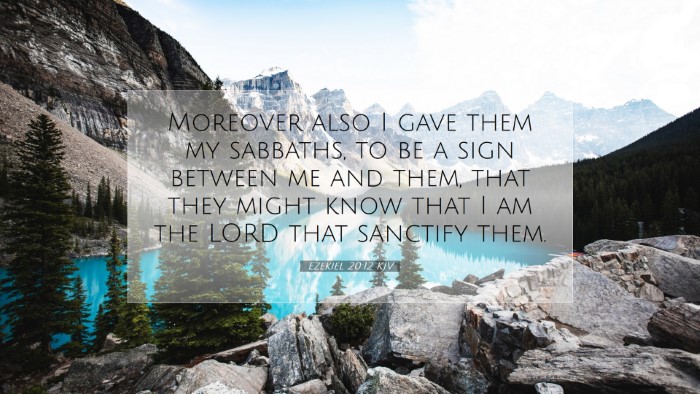Ezekiel 20:12 Commentary
Bible Verse: "Moreover also I gave them my sabbaths, to be a sign between me and them, that they might know that I am the LORD that sanctify them." (Ezekiel 20:12)
Introduction
This verse stands as a pivotal proclamation of God's covenant with His people, particularly reflected in the giving and significance of the Sabbath. By examining this verse through a comprehensive lens offered by public domain commentaries, we can glean profound insights into its theological implications and practical applications.
Contextual Significance
The context of Ezekiel 20 is crucial to understanding this proclamation. Israel's recurring disobedience and God's gracious reminders underpin this chapter. Both Matthew Henry and Albert Barnes emphasize that God's holiness and the sanctity He imparts are closely intertwined with the observance of the Sabbath.
Matthew Henry's Insights
Henry notes that the Sabbath serves as a divine sign—a tangible reminder of God's creative and redemptive work. In his exposition, he stresses that the Sabbaths are not merely days of rest; they embody an opportunity for the people to recognize God's lordship and engage in both physical and spiritual rejuvenation.
Purposes of the Sabbath
- Recognition of God's Sovereignty: The Sabbath calls believers to a rhythm of life that affirms God as the creator and sustainer.
- Sanctification: It emphasizes the transformative power of rest in aligning one's heart back to God.
Albert Barnes' Contribution
Barnes expands on the notion of the Sabbath as a sign of the covenant. He highlights that the Sabbath was given to Israel not merely for rest but also as a perpetual reminder of their distinction as God's chosen people.
Theological Implications
- Identity in God: The observance of the Sabbath reaffirmed Israel's covenant identity, distinguishing them from other nations.
- Sanctification Process: The term “sanctify” in this verse indicates God's ongoing work to set apart His people for holiness.
Adam Clarke's Analysis
Clarke's commentary provides a rich exploration of the covenantal aspects tied to the Sabbath. He articulates the idea that the giving of the Sabbaths was part of God's larger redemptive strategy. He suggests that neglecting the Sabbath was tantamount to breaking the covenant.
Covenantal Responsibilities
- Rest as Obedience: Keeping the Sabbath was more than a routine; it signified a commitment to obeying God's commands.
- Relation to Worship: It was a call to worship and acknowledge God's role in creation and salvation.
Modern Application
The insights drawn from Ezekiel 20:12 provide an ample basis for contemporary application in pastoral settings.
For Pastors and Theologians
Pastors can draw upon this text to reinforce the significance of honoring the Sabbath within their congregations, framing it as a holistic practice that involves rest, worship, and community engagement. The Sabbath serves as a rhythm of grace that allows followers of Christ to be rejuvenated and refocused on their mission.
For Students and Scholars
Students and scholars can glean from this passage a rich theological understanding of covenantal relationships. It invites deeper study into the nature of God's holiness and how that holiness is imparted on His people through practices like the Sabbath.
Conclusion
Ezekiel 20:12 encapsulates a profound theological truth about God's desire for His people to know Him as the one who sanctifies. Drawing from public domain commentaries by Matthew Henry, Albert Barnes, and Adam Clarke, we find that the meaning of the Sabbath transcends mere observance—it is a call to covenantal faithfulness, continuous sanctification, and recognition of divine sovereignty. By understanding these dimensions, we open pathways for deeper faith and commitment to the Christian life.


